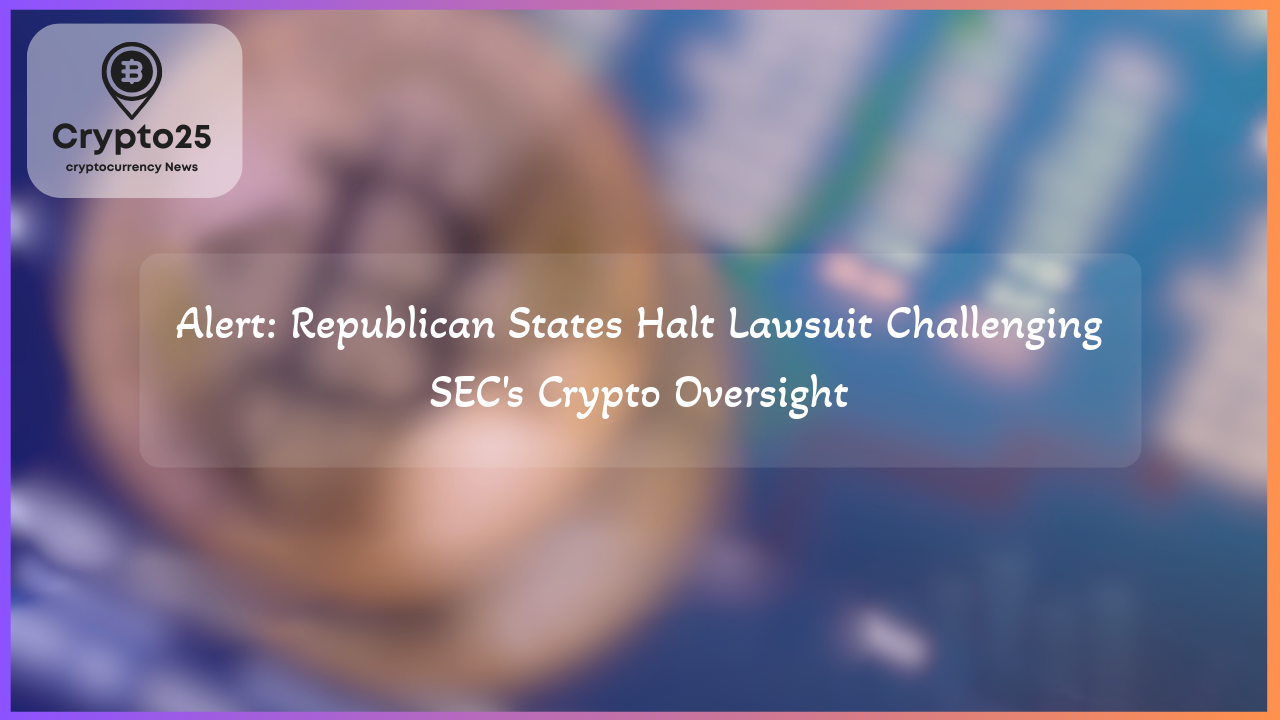
The ongoing clash between U.S. regulators and the crypto industry has taken another turn as key lawsuits regarding decentralized finance (DeFi) and digital asset frameworks face significant developments. With changes in leadership within regulatory bodies and shifts in governance approaches to blockchain technologies, the outcomes of these lawsuits could redefine the cryptocurrency regulatory landscape.
## SEC Lawsuit Paused Amid Leadership Changes
The much-anticipated lawsuit involving 18 state attorneys general, a decentralized finance advocacy group, and the U.S. Securities and Exchange Commission (SEC) has been temporarily suspended. Filed in late 2024, the lawsuit alleged that the SEC had overstepped its authority by aggressively pursuing enforcement actions against crypto exchanges. The state AGs, primarily Republicans, expressed concerns over the federal government infringing on state-specific regulatory frameworks for digital assets.
The SEC’s recent leadership change, which saw Paul Atkins assume the position of the agency’s chair, has become a pivotal moment in the process. On Wednesday, in an official filing, the SEC stated that the case could potentially reach a resolution due to this leadership transition. Subsequently, a federal judge placed the case on hold for 60 days, requiring both parties involved to submit a joint status report within 30 days. This temporary pause allows time to reassess how the agency’s direction under Atkins could influence the outcome of the litigation.
The original lawsuit highlighted the need to respect state-specific regulations for digital assets. Several states already enforce robust compliance measures, such as mandating platforms to obtain money-transmitter licenses and maintain security bonds. Advocates argued that the SEC’s actions undermined these structures, while Congress had repeatedly refrained from granting overarching authority over crypto assets to federal entities.
## Federal Regulatory Power and the Crypto Industry’s Concerns
The broader conflict between federal regulation and the autonomy of the crypto sector continues to dominate discussions as legislators evaluate potential frameworks. Many in the crypto industry worry that regulatory overreach could stifle innovation and prevent the U.S. from becoming a leader in blockchain technology. States with active digital asset regulatory frameworks, like Wyoming and Texas, argue that existing localized governance has already met the sector’s needs by offering transparency and stability.
Meanwhile, discussions surrounding market structure legislation in Congress bring a glimmer of hope. Key Congressional committees have already begun hearings focused on clearly defining the roles of federal agencies, including the SEC, in overseeing cryptocurrencies. Industry insiders believe a clearer legislative framework will provide much-needed clarity to market participants and reduce the risk of ad hoc regulatory interpretations.
This pause in the SEC’s legal initiatives also coincides with the agency dropping ongoing investigations and lawsuits against over a dozen crypto companies. While this signals a potential shift in enforcement strategy, crypto advocates still remain cautious about how regulatory policies might evolve in the coming months.
| Title | Details |
|---|---|
| Market Cap | $1.2 Trillion |
## The IRS DeFi Broker Rule Lawsuit Dismissed
In another regulatory development, a separate lawsuit filed by the DeFi Education Fund, Texas Blockchain Council, and Blockchain Association against the Internal Revenue Service (IRS) was officially dropped. This lawsuit challenged the IRS’ contentious DeFi broker rule, which critics argued exceeded the agency’s authority by imposing burdensome reporting requirements on blockchain-based platforms.
The dismissal followed a critical intervention by former President Donald Trump, who signed a joint Congressional resolution invalidating the IRS rule under the Congressional Review Act. This marked the first legislative initiative directly addressing cryptocurrency under Trump’s presidency, signaling government recognition of the need for balanced crypto regulation in the U.S.
In their Wednesday filing, the plaintiffs acknowledged that the lawsuit was now “moot” following the rule’s nullification. This resolution underscores the growing push within the cryptocurrency ecosystem, as well as among its advocates in Congress, to ensure that future legislation accommodates innovation while maintaining fair oversight.
## The Road Ahead for Cryptocurrency Regulation
As lawsuits are resolved or paused, it is clear that the regulatory framework for cryptocurrency in the U.S. remains a work in progress. Changes like the new leadership at the SEC and the involvement of Congress highlight a potential shift toward more constructive engagement between regulators and industry stakeholders. Balancing innovation with investor protections is likely to remain the core challenge for federal and state policymakers alike.
Simultaneously, developments like the dismissal of the IRS lawsuit and the SEC’s regulatory recalibration reflect the evolving dynamics of crypto governance. Whether these changes will ultimately help position the U.S. as a global leader in blockchain technology or result in a patchwork of inconsistent rules remains an open question. However, as the industry grows, regulatory clarity appears increasingly achievable, providing hope for an era of harmonious coexistence between innovation and governance in the crypto sector.
